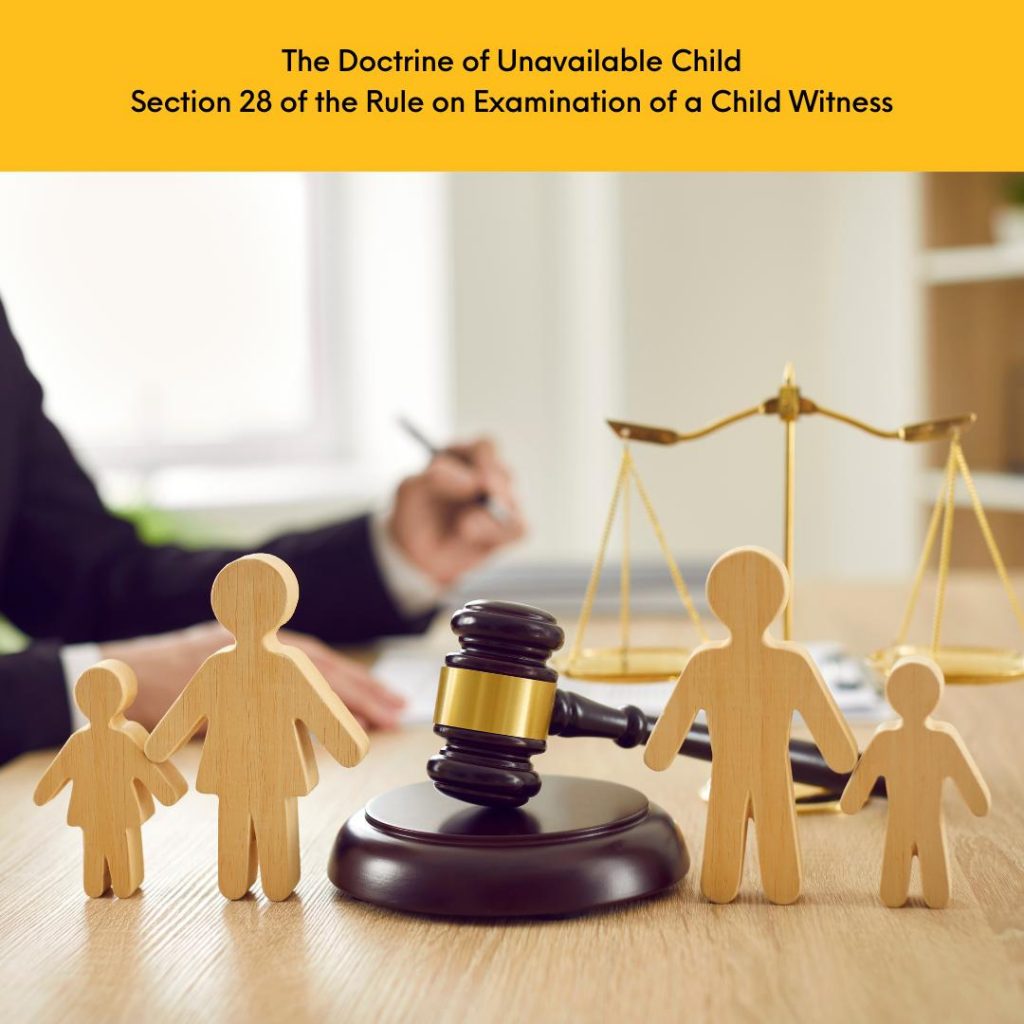
Published 03 March 2025, The Daily Tribune
An accused may be convicted of child abuse notwithstanding the failure of the victim to testify during trial. This is the Doctrine of Unavailable Child.
In People of the Philippines vs. XXX258054 (G.R. No. 258054, 25 October 2023), XXX was charged with qualified rape. The victim is his own daughter AAA who was then 14 years old at the time the crime happened.
During trial, the prosecution was unable to present AAA as a witness because her mother sent her away to prevent her from testifying against her own father XXX. In lieu of AAA’s direct testimony, the prosecution offered her Sinumpaang Salaysay along with the Sexual Abuse Protocol accomplished by AAA. The prosecution likewise presented other witnesses.
The Regional Trial Court (RTC) convicted XXX of qualified rape, citing the Doctrine of Unavailable Child under Section 28 of the Rule on Examination of a Child Witness. The RTC gave weight to the Sinumpaang Salaysay of AAA as well as the testimonies of the other prosecution witnesses. On appeal, XXX argued that the prosecution witnesses gave hearsay testimonies and there are inconsistencies in the witnesses’ testimonies and AAA’s Sinumpaang Salaysay. The Court of Appeals sustained the ruling of the RTC, holding that the Sinumpaang Salaysay is admissible as evidence as an exception to the hearsay rule under the Rule on Examination of a Child Witness
Ultimately, the Supreme Court affirmed the conviction of AAA, applying the Doctrine of Unavailable Child. The Supreme Court explained that this Rule allows the admission of hearsay testimony of a child describing any act or attempted act of child abuse when (1) the child is unavailable due to death, physical infirmity, lack of memory, mental illness, will be exposed to psychological injury, or is absent from the hearing and their attendance could not be procured by process or other reasonable means; and (2) the child’s hearsay testimony is corroborated by other admissible evidence.
Here, the circumstances warrant the application of the doctrine. AAA was unavailable to testify because her mother prevented her from attending the hearing and the prosecution was unable to procure her attendance by process or other reasonable means. Moreover, the prosecution was able to produce other pieces of evidence corroborating AAS’s hearsay testimony.
For more of Dean Nilo Divina’s legal tidbits, please visit www.divinalaw.com. For comments and questions, please send an email to cad@divinalaw.com.

